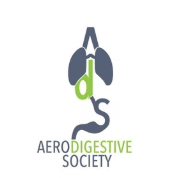
/
RSS Feed
The session on Aerodigestive Management of the Syndromic Patient covered three key syndromes: Trisomy 21, CHARGE, and 22q11.2 Deletion Syndrome. Here are the main points and takeaways:
Trisomy 21 (Down Syndrome)
- Prevalence and Impact: High prevalence of otolaryngologic, pulmonary, and GI issues.
- Common Issues:
- Airway Anomalies: Laryngomalacia, tracheomalacia, subglottic stenosis.
- Swallowing Dysfunction: High rates of dysphagia and aspiration, often silent.
- Obstructive Sleep Apnea (OSA): High prevalence, often requiring sleep studies for diagnosis.
- Management:
- Multidisciplinary approach involving ENT, pulmonology, GI, and other specialties.
- Supraglottoplasty for severe laryngomalacia, though it may have a higher failure rate in this population.
- CPAP or other airway management strategies for OSA.
CHARGE Syndrome
- Components: Coloboma, Heart defects, Atresia of the choanae, Retardation of growth and development, Genital abnormalities, Ear abnormalities.
- Common Issues:
- Airway Obstruction: Multiple levels, including nasal, oral, and laryngeal.
- Feeding Difficulties: High prevalence of dysphagia and aspiration, often multifactorial.
- Sleep Concerns: OSA and other sleep-related issues.
- Management:
- Multidisciplinary care is crucial.
- Be prepared for difficult airway management, including potential need for tracheostomy.
- Aggressive management of feeding and secretion issues, possibly involving surgical interventions like the drool procedure.
22q11.2 Deletion Syndrome
- Prevalence: Occurs in about 1 in 4000 live births.
- Common Issues:
- Cardiac Problems: Tetralogy of Fallot, VSD, ASD, vascular rings.
- Immune Deficiencies: Thymic hypoplasia or aplasia.
- Endocrinopathies: Hypocalcemia.
- Developmental Delays: Speech, motor, learning.
- Palate Abnormalities: Cleft palate, submucous cleft, VPI.
- Feeding Problems: High prevalence of dysphagia and aspiration.
- Management:
- Early diagnosis is crucial for managing the spectrum of associated conditions.
- Multidisciplinary approach involving ENT, speech therapy, GI, pulmonology, and genetics.
- Specific airway evaluations for VPI, glottic webs, subglottic stenosis, and medialized carotid arteries.
General Takeaways
- Multidisciplinary Approach: Essential for managing complex syndromic patients.
- Early and Comprehensive Evaluation: Crucial for diagnosing and managing associated conditions.
- Customized Care Plans: Necessary to address the unique needs of each patient.
- Importance of Genetic Testing: Helps in diagnosing and planning comprehensive care.
The session highlighted the importance of a coordinated, multidisciplinary approach to managing these complex patients, emphasizing the need for thorough evaluations and individualized care plans.
